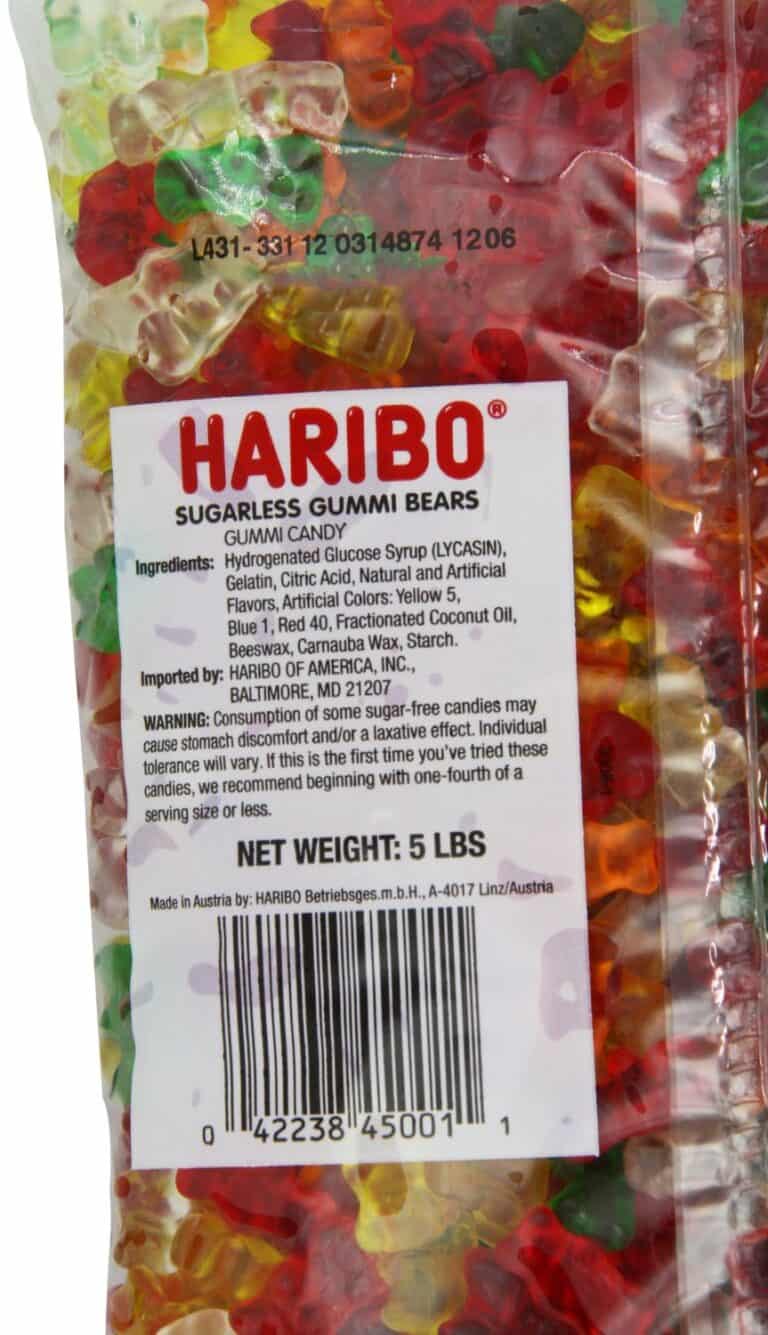Haribo sugar-free gummy bears have taken the internet by storm, not just for their taste, but for the wild stories surrounding their consumption. As a popular sugar-free treat, these gummy bears are often marketed as a healthy snack, particularly appealing to those following low-carb and keto diets. However, the overwhelming number of humorous and alarming reviews on platforms like Amazon paints a much different picture. In this article, we will explore the intrigue of Haribo’s sugar-free gummy bears, examining their ingredients, the science behind the laughs (and gasps), and what health experts really think about this peculiar candy.

sugar free gummy bears haribo amazon
The Allure of Sugar-Free: Why Are They So Popular?
In a world increasingly concerned with health and diet, sugar-free treats have gained immense popularity. Haribo sugar-free gummy bears fall under the umbrella of keto-friendly candy, targeting those who wish to indulge without the guilt that accompanies traditional sweets. Many people are turning to sugar substitutes, like maltitol—the artificial sweetener used in these gummy bears—allowing them to enjoy a taste of their childhood without compromising their diet.
The Health Factor: Are They Worth the Hype?
According to Dr. Lisa Young, a nutritionist and author of “Finally Full, Finally Slim,” “Sugar-free products can offer an alternative for those wanting to reduce sugar intake but can still cause gastrointestinal distress if consumed excessively.” This sentiment echoes throughout various expert opinions, highlighting the need for moderation. While Haribo’s sugar-free gummy bears contain fewer carbohydrates and calories than their traditional counterparts, eating them in large quantities can lead to unpleasant digestive issues.
What’s In Them? Ingredients Matter
The ingredients of Haribo sugar-free gummy bears are a focal point of concern. The primary sweetener, maltitol, is known for causing digestive discomfort, particularly when consumed in large amounts. The packaging includes warnings that overconsumption can lead to bloating, gas, and diarrhea. This hasn’t deterred fans, however, as many embrace the flavor and the low-calorie count.
Expert Opinions: The Real Deal on Sugar Substitutes
Registered dietitian and nutritionist Jillian Kubala states, “While maltitol doesn’t spike blood sugar levels like traditional sugars do, it can be hard on the digestive system, leading to the infamous ‘gummy bear cleanse’ effect.” This side effect has been the subject of numerous entertaining reviews across Amazon and social media, contributing to the candy’s notoriety.
Consumer Reactions: A Rollercoaster of Reviews
The reviews on Amazon reflect a mix of hilarity and horror. One user humorously claimed, “I sit here writing this review at 4 AM from my porcelain throne,” referencing the acute digestive effects of overindulgence in sugar-free gummy bears. Such testimonials are not isolated; they highlight the far-reaching consequences of consuming these sugary delights.
Going Viral: The Stories that Captured the Internet
Like many things in today’s internet culture, the stories surrounding Haribo sugar-free gummy bears have gone viral. In 2014, a review titled “See you in hell, Haribo Sugar-Free Gummy Bears” gained notoriety for its stark warning about the candy’s side effects. The review captured the attention of many, leading to a surge of interest in the product—both positive and negative. Buzzfeed and Forbes have even featured articles discussing the culinary aftermath of indulging in these gummy treats.
The Balance Between Indulgence and Health
While there’s no denying that Haribo sugar-free gummy bears can be a delicious treat for those looking for a sugar alternative, it’s essential to approach them with caution. Advocating for a healthy and balanced lifestyle, nutrition experts recommend moderation and awareness of ingredients. “Self-love and balance are vital,” says Dr. Young. “Enjoy treats but do so mindfully.”
Health Talk: Managing Your Gummy Bear Consumption
To minimize the potential for gastrointestinal distress, experts suggest starting with a small quantity of Haribo sugar-free gummy bears, observing how your body reacts before indulging further. This strategy allows for enjoyment without the regrettable side effects that so many users have humorously documented in reviews.
Frequently Asked Questions (FAQs)
- Did they discontinue Haribo sugar-free gummy bears? No, Haribo still produces sugar-free gummy bears, but there were previous incidents of warnings and product adjustments due to consumer feedback.
- What is the sweetener in Haribo sugar-free gummy bears? The primary sweetener is maltitol, an artificial sweetener that doesn’t raise blood sugar levels as traditional sugar would.
- Are there significantly fewer calories in sugar-free gummy bears? Yes, sugar-free gummy bears usually have fewer calories compared to regular gummy bears due to the use of sugar substitutes.
- Can sugar-free gummy bears cause digestive issues? Yes, many consumers report digestive discomfort if consumed in large quantities due to maltitol.
- How should I store sugar-free gummy bears? They should be kept in a cool, dry place, away from direct sunlight to maintain their firmness and flavor.
In conclusion, while Haribo sugar-free gummy bears can be an enjoyable occasional treat, understanding their potential effects and consuming them wisely is paramount. They strike a balance between indulgence and dietary preferences, but always remember: a little (or a few) goes a long way.